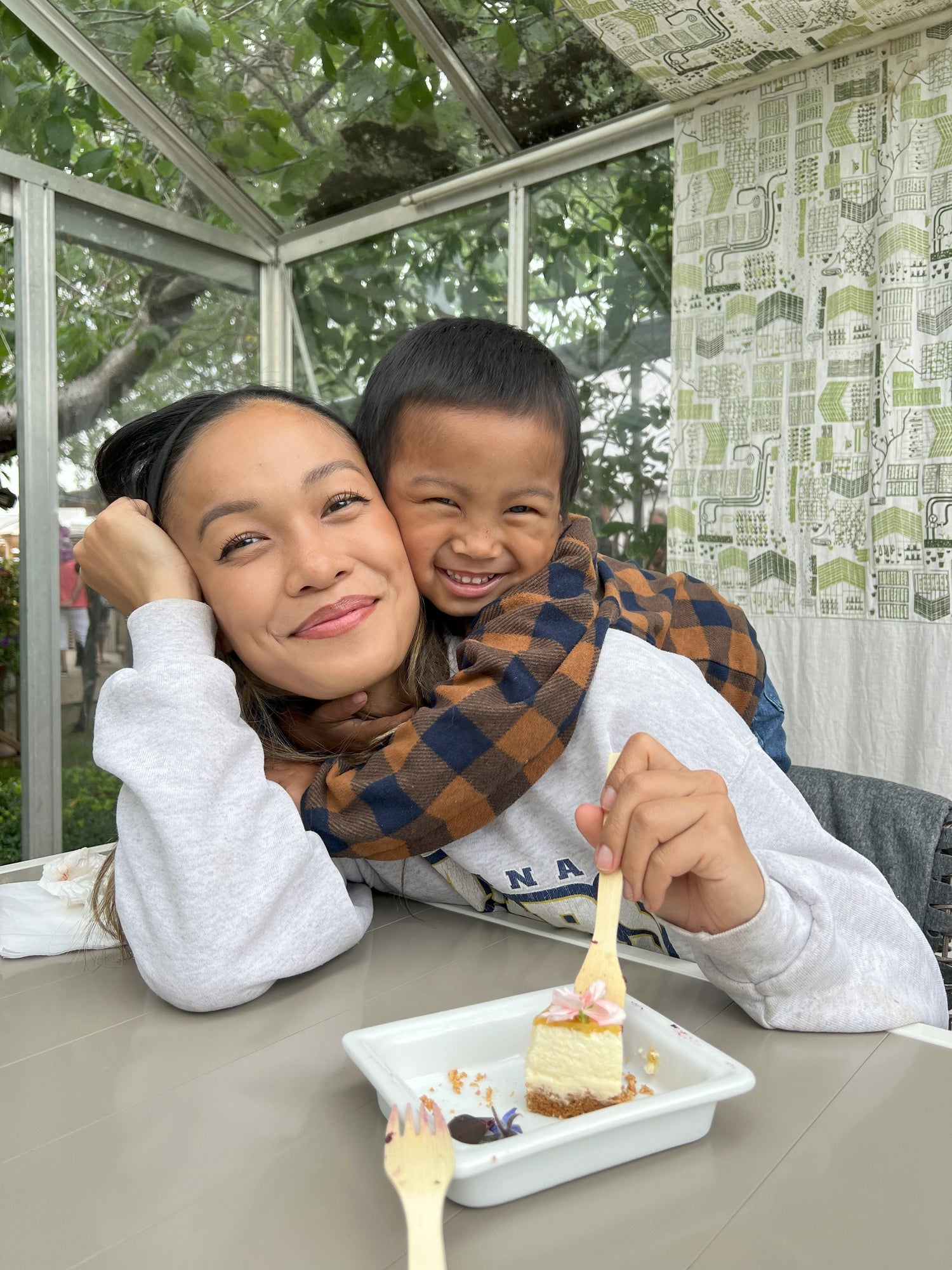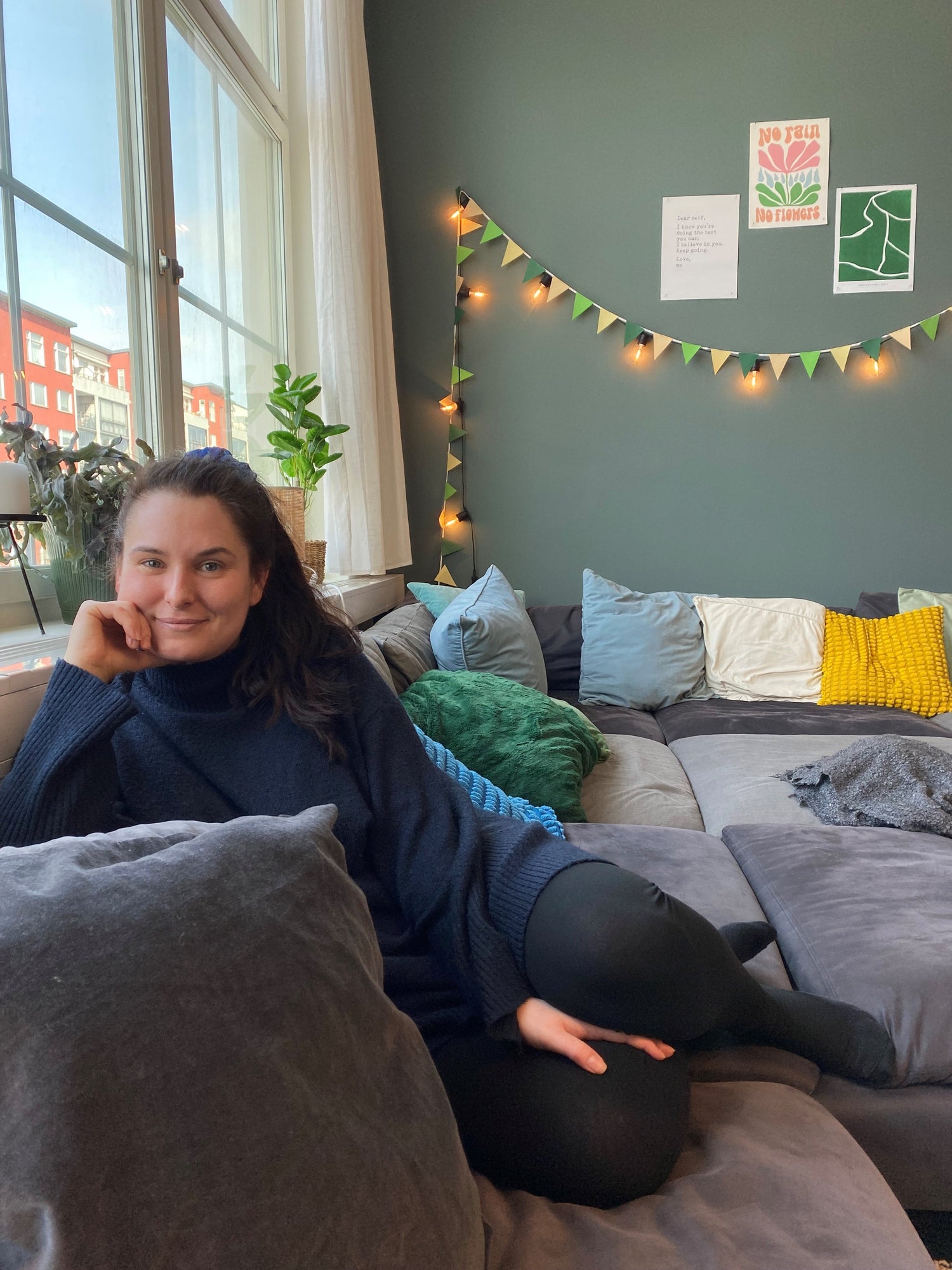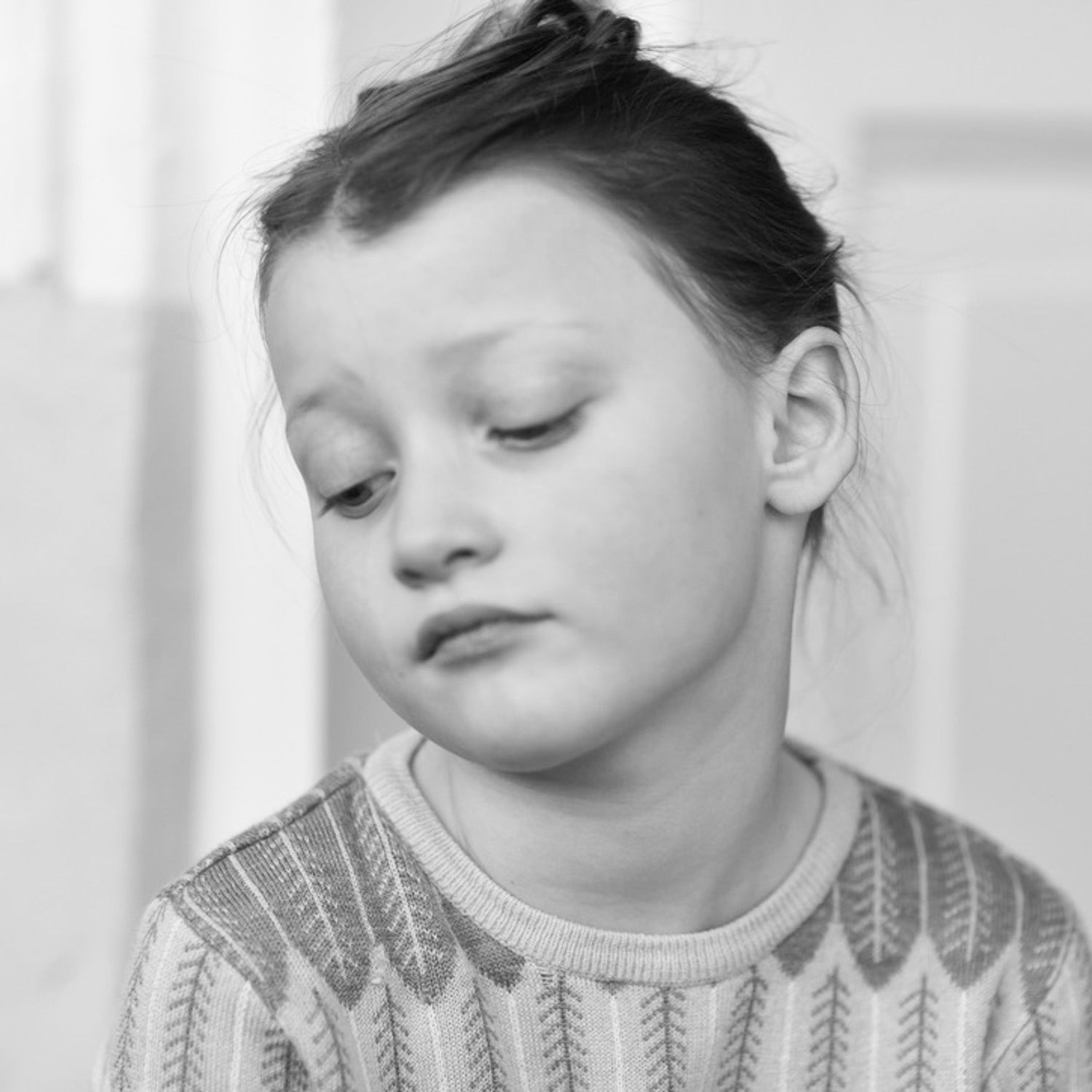I have spoken to Pernilla, who wants to live as openly as possible with what it is like to struggle with mental illness. Pernilla's children, soon to be 6 and 4, know that their mother has a tough time at times - Pernilla talks about it with the help of fairy tales and our emotional cards. By putting it at the level that works for them - age-wise and development-wise, she wants to create an environment where they can express feelings themselves and become empathetic, emotionally intelligent individuals.
Pernilla is studying to become a web communicator and I got in touch with her after she showed a film she made where she and the children use the emotion cards.
Hi Pernilla! We started talking when you published a great little film you made about our emotion cards. As I understood it, you use the cards at home to be able to talk more easily about feelings and what is difficult. Do you want to tell us more?
When I ask “How are you? Why did you do that? Is there something wrong?", the answer is all too often "I don't know". It's hard to put your feelings into words, you don't want to say you were sad about something and be questioned. It is easier to wave away with an "I don't know".
That's why I was hooked on the Emotion Cards as soon as I saw them, it's a clear picture and a word. They don't even need to know what it says, but they look at the picture and can say "that's how I feel". If they get stuck and don't want to talk, I can take out a card and say "if this had happened to me, I would have felt this way". When I show that I have feelings too, no matter how stupid it sounds, it feels like they understand that it's okay and can then talk further. When we have confirmed the feelings, we go through them "Where does it feel in the body when you are sad?". We always end by saying that it's totally okay to feel that way and we're proud that they shared.
Sometimes they are used for deep conversations about something that happened at school, and sometimes they show the "angry" card when I don't give them candy in the middle of the week.

You told me that you think it's important that the children know how the parents feel, that they understand, for example, what it's like when a parent lives with a mental illness or diagnosis. Do you want to tell us more about how you are open with your children?
Children understand much more than you think and definitely know when you are hiding something from them. Then, of course, it is necessary to adapt to the children's level. I would never tell the kids that I was suicidal and tried to commit suicide when I was younger.
I entered parenthood with the hope that I would be "healthy", my life was so good. I tried to keep all the negative thoughts away, but instead it made me break down more and more often. I had panic attacks in front of the kids before they were even a year old. Of course they get scared because they don't understand what's going on. I struggled and balanced everything as best I could with private life, studies and work.
Somewhere along the way I got tired of feeling like this. As a child I had been told that everyone is unwell, why is it so hard for me? Then I decided to do a neuropsychiatric examination. After a year I had received the diagnoses
- ADD
- Social Phobia
- Panic disorder
- GAD (generalized anxiety disorder)
- Dysthymia (Chronic depression)
It was liberating to get the diagnoses, to understand how I functioned and find tools to feel better. To be able to stop blaming myself for always being weak, when really I was just forced to be stronger than I am.
Being quick to blame myself, I thought my children might function the same way. Many of my diagnoses are genetic. Then I decided that I had to explain to them how it was, I wanted to catch them early.
I started telling stories about me and things I had been through. I used other names and instead of diagnoses, maybe they were monsters that just needed a hug. When I later found your emotion cards, I felt that it was a good tool to explain my feelings on the children's level. It became the first area of use, to be able to explain my feelings to the children. It was just a bonus that they also started communicating with them.

Do you feel that your approach to this is in conflict with the rest of society? What do you think we can do more to make visible and normalize e.g. mental illness?
Many people are actually surprised when I tell them that the children know about my diagnoses. I have told the children's educators that we are completely open about it, so it is not strange if it comes up. I then feel that they become a little uncomfortable.
No one wants to feel bad, but many do. Several people try to make "us" with mental illness feel better, but it fails and diminishes our well-being "It's only in our heads, it's not like that, everyone can have a bad day". Same as saying ADHD is a superpower, no, rather a disability (variation). You don't always have to find positive denominators in a bad situation. Sometimes it's just crap, frankly, and we need to talk about that. Because if we don't talk about troublesome things. How should we teach children to deal with difficult things?
Do you have tips for other adults who live with children, who may be afraid to show how they feel? How can we get out of old notions that we adults should "bite down and be adults"?
Just like I mentioned earlier, children understand more than you think. Therefore, I think that you should tell how it is instead of letting the children's imaginations run wild. They may begin to suspect that you feel bad because of them, that they have done something wrong or that you do not like them.
Mental illness is like any other diagnosis. The demands I had on myself to control my panic attacks are really unreasonable. If I had epilepsy, I would not have demanded to stop convulsing. No one else had either.
Finally, I would like to point out that it is extremely important not to transfer the responsibility for one's well-being to the children. I'm careful to say that it's not the children's fault that I feel this way, that it's not their job to make sure I'm okay. But mother should contact her doctor, who helps mother very well. Actually a psychologist, but they understand the word "doctor" better.
Of course the children want to help when mom is sad, but they shouldn't take over my worry and think they can take away the illness. In the moment when I'm sad, they bring me stuffed animals, offer the best hugs and tell me I'm the best. The fear of ruining their childhood is replaced more and more by the happiness of seeing that they have been taught something important in life. Empathy.
You will find Pernilla on Tiktok under the name @anxiousmilla where she makes videos about mental illness.
Emotion cards can help in conversations with children. Read more HERE





